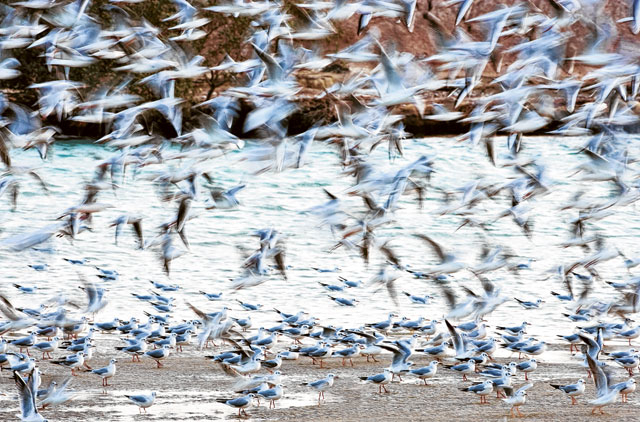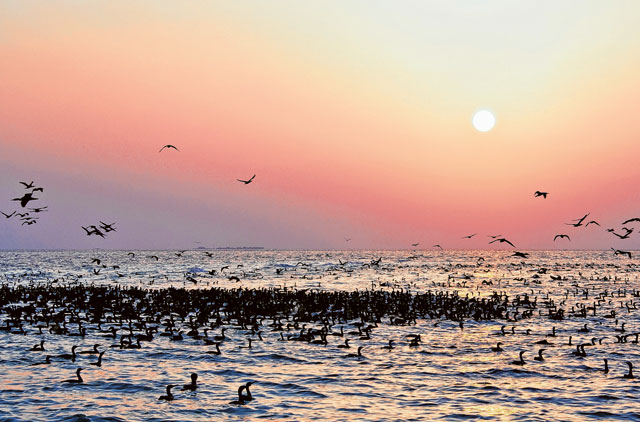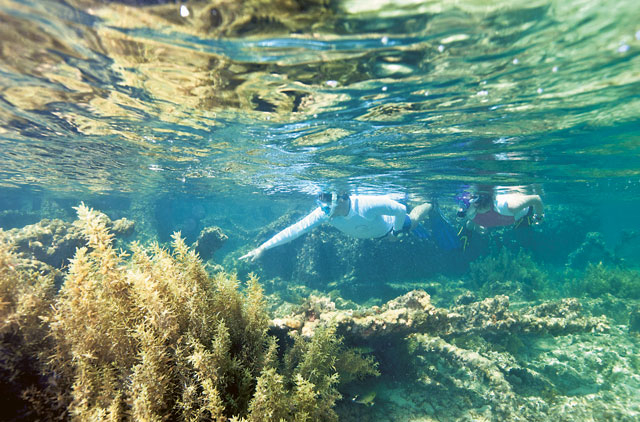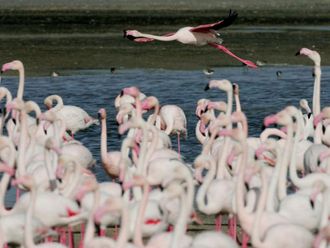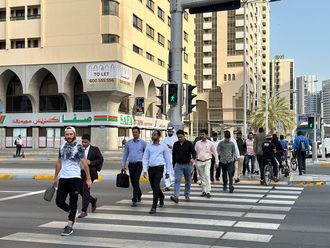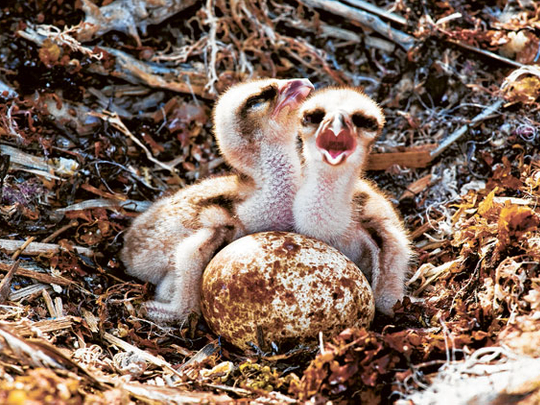
Abu Dhabi: When a turtle starts nesting on the beaches of Discovery Islands, the activity is detected by a GPS (Global Positioning System) device of the conservation teams who act immediately.
They wipe away the turtle prints leading to and from the nest to prevent illegal poachers from finding the nests.
The six uninhabited islands of incredible beauty have been assessed as very important breeding zones and they are protected from illegal poachers, fishermen and campers.
The islands with lovely sandy beaches, thriving reefs and internationally important populations of birds remain untouched, serving as nesting grounds for migratory birds and turtles.
They are close to Sir Bani Yas Island in the Western Region of Abu Dhabi, situated about 250 kilometres from Abu Dhabi city.
The abundant marine life, lack of people and an eight-kilometre no-fishing zone surrounding these waters have made them a breeding location for turtles, a senior official told Gulf News recently.
Endangered
"In addition, these waters are also popular feeding grounds for the bottlenose and humpback dolphins and the endangered dugongs and they have often been seen in groups with small calves," Nasser Al Shaiba, head of the environmental department at Tourism Development and Investment Company ( TDIC), said.
The islands are also home to birds such as osprey, Socotra cormorant, terns, gulls and kestrels.
TDIC protects the islands. There are a large number of turtles breeding in and around the islands. "We can find large feeding populations of green turtles but the hawksbill are the ones breeding on the islands," Al Shaiba said.
Asked about the number of turtles that nest each year, he said as the sea turtles take around 20 years to reach sexual maturity and they cannot breed every year, it is very difficult to predict the number.
"Some years, we have as few as nine nests and some others we have larger numbers," the official said.
Monitoring daily
"A team appointed by our environment team monitors these waters on a daily basis, preventing illegal fishing in these waters," Al Shaiba said.
Also during the nesting season of turtles, the beach is patrolled by professionals trained to collect data and monitor the growth of the turtles.
Al Shaiba hinted that the islands may become a tourism destination in the future.
"TDIC's goal is to continue to protect the islands and ensure that any future development on the islands is a unique and sustainable addition to Abu Dhabi's tourism offering," he said.
Protected areas
Discovery islands: The six Discovery Islands are located two to six kilometres off the coast of Sir Bani Yas Island, situated about 250 kilometres away from Abu Dhabi city.
They are Gasha, Umm Al Kurkum, Umm Qasr, Jaber, Umm Al Hamas and Alaquat. Together with Sir Bani Yas Island and Delma Island, they form the eight Desert Islands.
Discovery Islands are a protected area. The tourists visiting Sir Bani Yas Island can watch the bird and marine life on Discovery Islands from a safe distance, under the supervision of trained nature guides.
Black spots
Socotra cormorants: Guests flying over on a Desert Islands Scenic flight will notice a part of the islands is black from the air. These are Socotra cormorants which have taken every available roosting position for nesting on the islands.
These birds are the most notable inhabitants of the islands which host a colony of almost 20,000. Umm Qasr Island is home to one of the largest breeding colonies of Socotra cormorants in the world with up to 17,000 gathering to breed each year.


